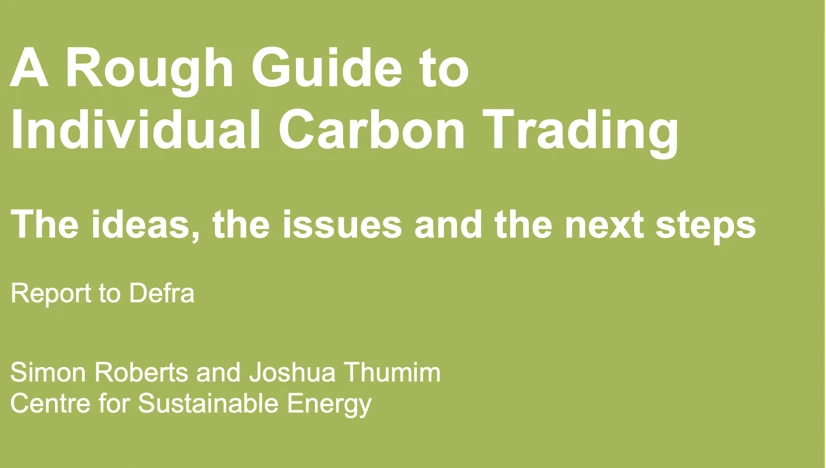A Rough Guide To Individual Carbon Trading
Departement for Environment, Food and Rural Affairs (DEFRA), 2006
This report to the DEFRA summarizes the main approaches, opportunities and difficulties that come with individual carbon trading.
The idea of individual carbon trading originates from the work of David Fleming, who pushed forward the idea of Tradable Energy Quotas (TEQs). It consists in the limitation of a country's energy consumption by attributing energy quotas to every citizen. The maximum number of quotas put on the market would be based on the GHG emissions reduction goals and could not be exceeded. People with an excess quantity of quotas could sell them to demanding people on a specific market controlled by an independent authority.
The main arguments for such a system were -in theory- its efficiency in tackling GHG emissions as well as reducing social inequalities, as high-income people are also high-GHG emitting ones and would then redistribute a part of their wealth to low-income (and low-GHG emissions) people.
The report to the DEFRA comes in a context where the UK is debating a law which would implement such a system (and which, in the end, was abandoned due to the instability caused by the 2008 financial crisis).
Comment from our editors:
In 40 pages, this report gives a clear overview of possible approaches and challenges to an individual carbon trading system. I would recommend this reading to someone looking for alternatives to carbon taxation to tackle GHG emissions, as the individual carbon trading ideas were often constructed in opposition to carbon tax policies.
Although the idea of a cap-and-trade system gave birth to many suggestions and adjustments in the academic fields, it did not really percolate the public debate. We can still quote some initiatives in the first decade of the 2000's: the CRAGs (Carbon Rationing Action Groups) who tried to ration their carbon consumption (see Rachel Howell, "The experience of carbon rationing action groups", 2009), or the UK law project to implement a cap-and-trade carbon quotas system between 2004 and 2008 (which was abandoned due, partly, to the 2008 crisis).

